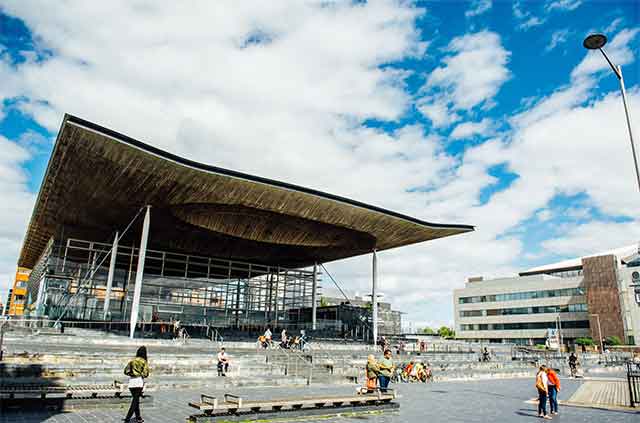Tourism leaders have urged Wales not to follow Scotland’s lead by replicating a “failed” licensing scheme that has “harmed” the industry and created a “thriving black market”.
Last week, the Welsh Government unveiled a tourism bill in the Senedd which, if passed, will create a mandatory licensing scheme for short-term Airbnb-style rentals.
But industry representatives gave a damning account of a similar policy in Scotland, describing the experience since its introduction in 2022 as a “real horror story”.
Marc Crothall, chief executive of the Scottish Tourism Alliance, warned the policy has created “far greater harm than good” as he gave evidence in the Senedd.
He told the economy committee: “When policy is developed without a clear objective and without reliable data, it fails, and Scotland… is that case study.”
‘Uncredible’
Fiona Campbell, chief executive of the Association of Scotland’s Self-Caterers, pointed to two successful judicial reviews brought against Edinburgh council. She warned the entire Scottish scheme is “in breach” of the Human Rights Act.
She said: “I would just urge the Welsh Government and policy makers to really take heed of these warnings… don’t do it as Scotland has done it – or you may well end up in court.”
Ms Campbell argued that rather than solving housing problems, the policy was “harming the wrong people and regulating the wrong thing”.
Calling for extreme caution, she criticised the Welsh Government’s projected £75 annual fee for the new licence, labelling it “entirely uncredible” based on Scotland’s experience.
Ms Campbell – who has run a self-catering property for 23 years – told Senedd members while low fees were promised in Scotland, the reality is they range from £205 to £5,698.
‘Leaving in droves’
She also dismissed assurances that artificial intelligence and automation would keep administrative costs down as “entirely unrealistic”. “Unless Wales has come up with amazing AI that I’m not aware of, I just don’t think it’s credible,” she said.
She argued the Scottish policy was flawed from the outset because it wrongly tried to solve a housing crisis by regulating tourism, similar to the rationale in Wales.
Ms Campbell warned of the impact on small operators, with 70% of the Scottish self-catering sector made up of women aged over 55 – a figure she wagered was similar in Wales.
“These are the people you’re harming,” she said.
She told the committee the “horror story” in Scotland has seen operators “leaving in droves”.
Mr Crothall added this has led to empty homes, pointing to 230 properties on the Isle of Skye that “remain purely second homes” after their owners opted not to apply for a licence.
‘Disproportionate’
Both witnesses stressed they were not against regulation but they argued a separate licensing scheme was disproportionate.
Ms Campbell said the industry supports a national register that includes mandatory health and safety checks but she questioned the need for a second, more costly licensing layer.
“My question is: why do you need licensing on top?” she asked the committee. “If I were a policy maker in Wales, I would wait until I had all the data… it feels premature.”
Giving evidence during an earlier session on November 5, finance secretary Mark Drakeford defended the tourism bill as “good for the industry”. The former first minister argued the bill would create a level-playing field and reassure visitors.
Prof Drakeford said Wales had learned from Scotland’s “locally based scheme” – which he said had caused confusion – by opting for a simpler, national model.

